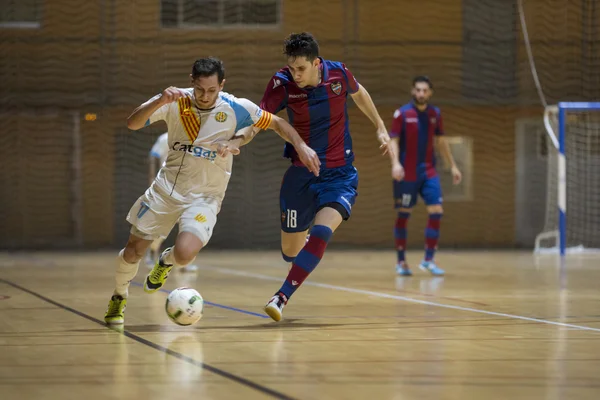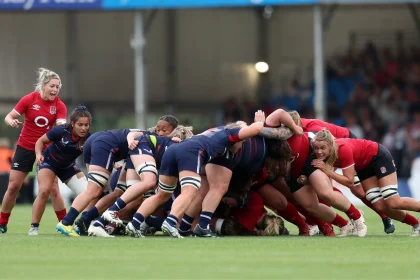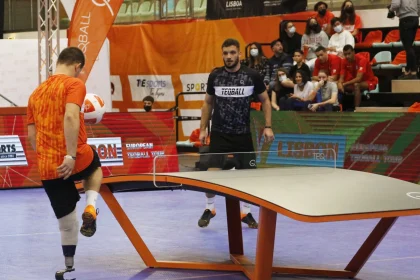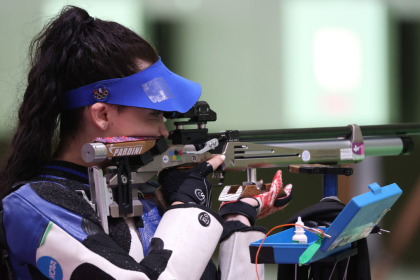Futsal is a fast-paced, small-sided soccer game played on a hard court, typically indoors, with five players per team (including a goalkeeper). It emphasizes technical skill, quick decision-making, and ball control in tight spaces. The game uses a smaller, heavier ball with less bounce than a standard soccer ball, and matches consist of two 20-minute halves with a running clock.
Why Futsal is Popular in the Global Sports Market
Futsal’s global appeal stems from several factors:
- Accessibility: It requires minimal space (a small court, often in gyms or community centers) and fewer players than soccer, making it ideal for urban areas and regions with limited resources.
- Skill Development: The game’s emphasis on close control, quick passing, and creativity hones skills transferable to soccer. Legends like Pelé, Ronaldinho, and Messi credit futsal for their technical prowess, boosting its reputation.
- Fast-Paced Entertainment: Its high-scoring, action-packed nature attracts players and spectators, with games often featuring rapid transitions and skillful plays.
- Global Reach: Futsal is played in over 100 countries, with strongholds in South America (Brazil, Argentina), Europe (Spain, Portugal), and Asia (Iran, Japan). Its inclusion in FIFA’s portfolio and regional federations ensures widespread promotion.
- Youth Engagement: Futsal is a cornerstone of youth development programs, offering a fun, skill-focused alternative to 11-a-side soccer.
- Economic Viability: Low infrastructure costs and growing sponsorships (e.g., Nike, Adidas) make it a viable sport for clubs and organizers. The global futsal market is projected to grow steadily, driven by urbanisation and demand for indoor sports.
Important Global Events
- FIFA Futsal World Cup: The pinnacle of the sport, held every four years. Brazil leads with five titles, followed by Spain (2), Portugal, and Argentina. The 2024 event in Uzbekistan saw Brazil defeat Argentina 2-1 in the final.
- UEFA Futsal Champions League: Europe’s premier club competition, dominated by Spanish clubs like Inter Movistar and Portuguese sides like Sporting CP.
- Copa América de Futsal: South America’s regional championship, where Brazil has won 10 of 12 editions.
- AFC Futsal Asian Cup: Asia’s top tournament, with Iran and Japan as frequent champions.
- AMF Futsal World Cup: Organized by the Asociación Mundial de Fútsal, this alternative world championship is popular in Latin America, with Colombia and Argentina as recent winners.
- Youth Olympic Games Futsal: Introduced in 2018, it showcases young talent, with Brazil and Portugal winning past editions.
How to Get Started and Become a Great Futsal Athlete (Young or Old)
- Getting Started:
- Find a Local Program: Search for futsal clubs, leagues, or community centers offering games or training. Many soccer clubs include futsal in their programs. Websites like FIFA.com or local sports federations list opportunities.
- Equipment: Invest in futsal shoes (flat, non-marking soles for grip), shin guards, and athletic clothing. A size 4 futsal ball is essential for practice.
- Learn the Rules: Familiarize yourself with futsal’s unique rules (e.g., 4-second restart rule, smaller goals of 3m x 2m, and no offside). Free resources on YouTube or FIFA’s website explain basics.
- Join Beginner Sessions: Look for introductory clinics or youth camps, often run by national federations or private academies. For older athletes, adult recreational leagues are widely available.
- Key Skills to Develop:
- Ball Mastery: Practice close-quarters dribbling, using both feet and the sole for control (e.g., toe taps, pullbacks).
- Passing and Movement: Master quick, accurate passes and off-the-ball runs to exploit tight spaces.
- Shooting: Develop powerful, precise shots for small goals, focusing on technique over strength.
- Tactical Awareness: Learn versatile roles (pivot, winger, defender) and formations like 2-2 or 3-1.
- Agility and Fitness: Build speed, lateral movement, and endurance for constant transitions.
- Training Plan (Beginner to Intermediate, 12 Weeks):
- Weeks 1-4: Build Fundamentals
- Technical Drills (3x/week, 60 min): Dribble through cones, practice short passes in triangles, and work on ball control (e.g., sole rolls, V-pulls).
- Fitness (2x/week, 30 min): High-intensity interval training (HIIT) with 20-second sprints and 10-second rests, plus agility ladder drills.
- Game Play (1x/week, 60 min): Join pickup games or scrimmages to apply skills in a low-pressure setting.
- Weeks 5-8: Enhance Game Sense
- Technical Drills (3x/week, 60 min): Add defenders to drills (e.g., 1v1 or 2v2) and practice quick shooting under pressure.
- Fitness (2x/week, 45 min): Incorporate plyometrics (e.g., box jumps, lateral hops) and 3-5 min endurance runs.
- Tactics (1x/week, 30 min): Study formations and rotations via chalkboard sessions or video analysis (e.g., FIFA Futsal World Cup clips).
- Game Play (1-2x/week, 60 min): Play in structured matches to refine positioning and teamwork.
- Weeks 9-12: Competitive Readiness
- Technical Drills (3x/week, 60 min): Focus on advanced moves (e.g., give-and-go, wall passes) and finishing in game scenarios.
- Fitness (2x/week, 45 min): Add reaction drills (e.g., sprint on whistle) and maintain HIIT for match stamina.
- Tactics (1x/week, 45 min): Practice set pieces (corners, free kicks) and defensive strategies like pressing.
- Game Play (2x/week, 60-90 min): Compete in local tournaments or league matches to simulate competitive pressure.
- Path to Excellence:
- Join a Competitive Team: After mastering basics, try out for local or regional futsal clubs. Many offer youth and adult divisions.
- Seek Coaching: Work with specialized futsal coaches for personalized feedback. Online platforms like Futsal Focus offer virtual coaching.
- Study the Game: Watch professional matches (e.g., Liga Nacional de Futsal in Brazil or UEFA Futsal Champions League) to emulate stars like Ferrão, Ricardinho, or Pito.
- Compete Regularly: Enter national or international tournaments to gain experience and exposure.
- Physical and Mental Prep: Follow a balanced diet (high protein, complex carbs), prioritize recovery (stretching, 8+ hours sleep), and use visualization or mindfulness to build mental resilience.
- For Older Athletes: Focus on injury prevention (e.g., warm-ups, mobility work) and leverage experience to excel in tactical roles like pivot or defender.
Additional Tips
- Youth Pathway: Futsal is ideal for kids aged 6-16, building skills for soccer or futsal careers. Many professional soccer academies (e.g., FC Barcelona, São Paulo FC) integrate futsal.
- Resources: Explore tutorials on YouTube (e.g., Futsal Pro or LNFS channel), FIFA’s futsal hub, or apps like Futsal Coach for drills.
- Community Engagement: Connect with futsal players on X or local forums to find games, coaches, or tournaments.











